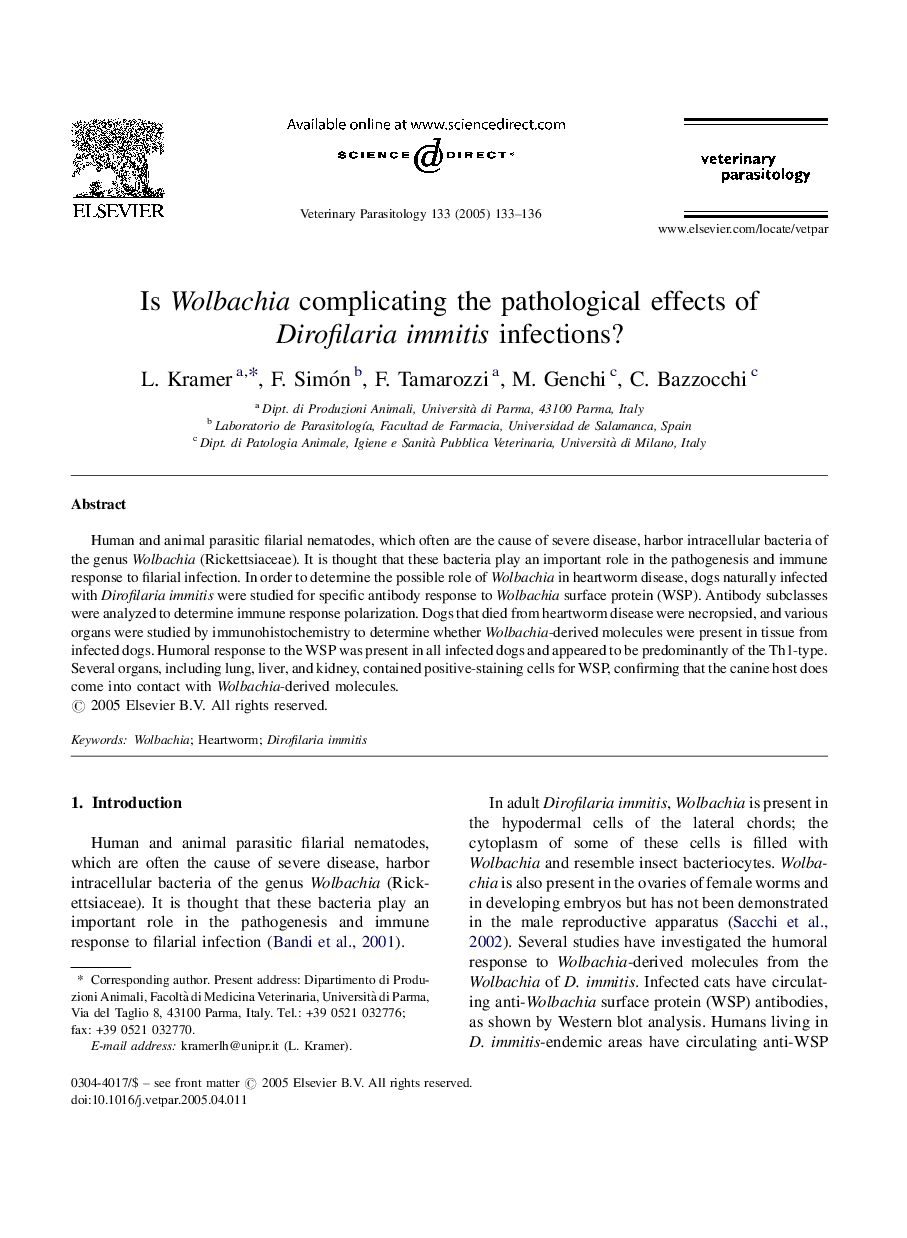| Article ID | Journal | Published Year | Pages | File Type |
|---|---|---|---|---|
| 8991090 | Veterinary Parasitology | 2005 | 4 Pages |
Abstract
Human and animal parasitic filarial nematodes, which often are the cause of severe disease, harbor intracellular bacteria of the genus Wolbachia (Rickettsiaceae). It is thought that these bacteria play an important role in the pathogenesis and immune response to filarial infection. In order to determine the possible role of Wolbachia in heartworm disease, dogs naturally infected with Dirofilaria immitis were studied for specific antibody response to Wolbachia surface protein (WSP). Antibody subclasses were analyzed to determine immune response polarization. Dogs that died from heartworm disease were necropsied, and various organs were studied by immunohistochemistry to determine whether Wolbachia-derived molecules were present in tissue from infected dogs. Humoral response to the WSP was present in all infected dogs and appeared to be predominantly of the Th1-type. Several organs, including lung, liver, and kidney, contained positive-staining cells for WSP, confirming that the canine host does come into contact with Wolbachia-derived molecules.
Related Topics
Life Sciences
Agricultural and Biological Sciences
Animal Science and Zoology
Authors
L. Kramer, F. Simón, F. Tamarozzi, M. Genchi, C. Bazzocchi,
